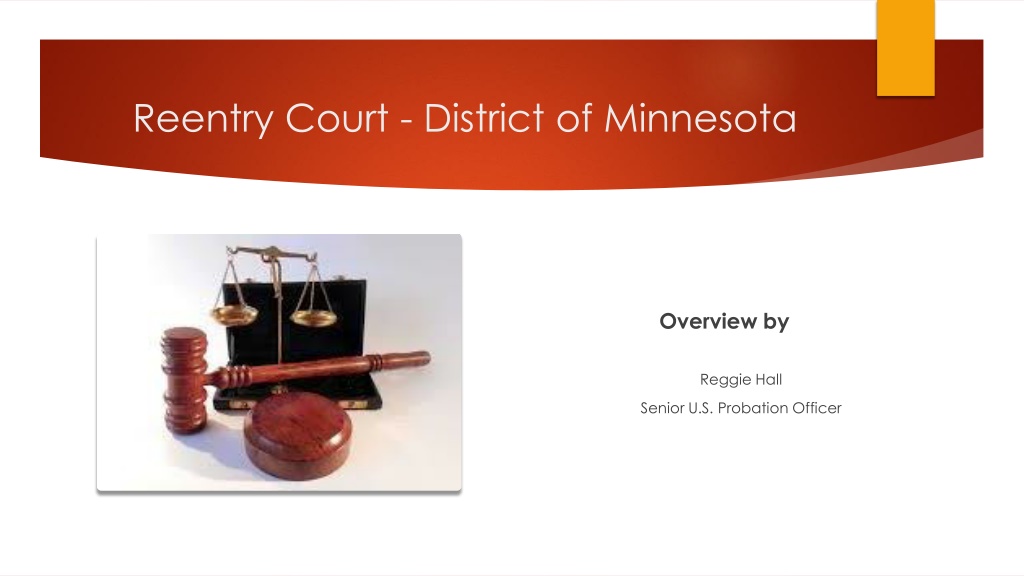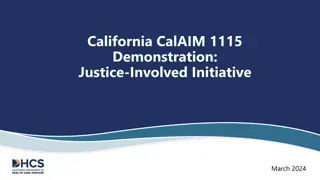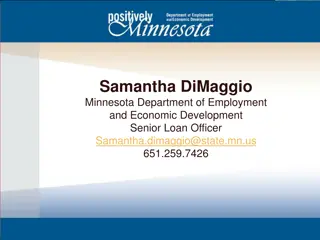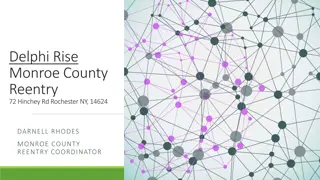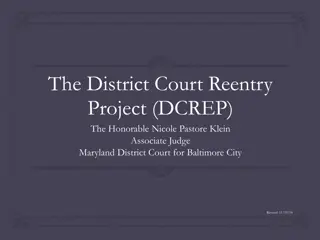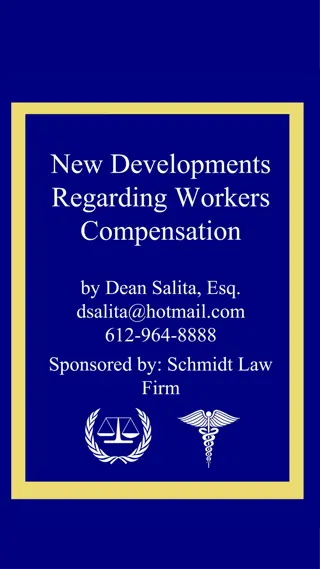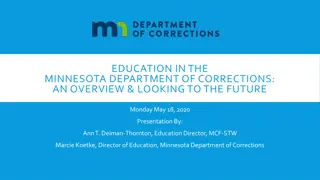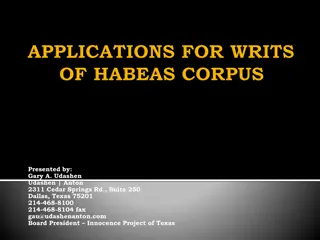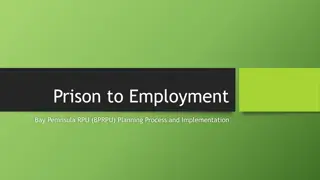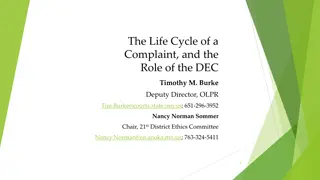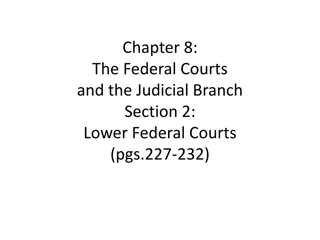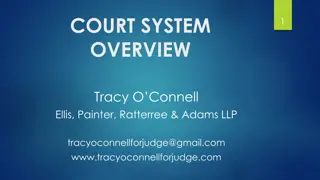Reentry Court District of Minnesota Overview
The Reentry Court in the District of Minnesota focuses on reducing recidivism among moderate/high-risk offenders through a collaborative effort between various agencies. The program offers a structured 12 to 18-month supervision period, emphasizing court attendance, stable residency, employment, and adherence to program requirements. Participants are required to agree to supervision modifications and comply with all conditions. The team approach involves regular debrief meetings, engagement with community mentors, and interaction with treatment providers for effective program implementation.
Download Presentation

Please find below an Image/Link to download the presentation.
The content on the website is provided AS IS for your information and personal use only. It may not be sold, licensed, or shared on other websites without obtaining consent from the author. Download presentation by click this link. If you encounter any issues during the download, it is possible that the publisher has removed the file from their server.
E N D
Presentation Transcript
Reentry Court - District of Minnesota Overview by Reggie Hall Senior U.S. Probation Officer
Reentry Court District of Minnesota In 2014, the District of Minnesota attended the U.S. Department of Justice Smart on Crime Workshop. Benefits from the Smart on Crime Workshop: Collaborated with other judicial districts on evidence-based decisions regarding supervision interventions. Birthplace for the concept of developing a problem solving court in the District of Minnesota. With the support of the Bench, U.S. District Court Judges Susan Richard Nelson and Donovan W. Frank presided over our first Reentry Court in the District of Minnesota (November 2015)
Reentry Court District of Minnesota Designed offenders as they transition into the community. to reduce recidivism for high risk Collaborative effort between the U.S. District Court, U.S. Attorney s Office, Federal Defender s Office, and U.S. Probation Office, along with community agencies. Provide traditional post-conviction supervision. participants with an alternative to Engage in collaborative and intense community supervision over a period of 12 to 18 months (depending upon progress).
Reentry Court District of Minnesota Program Criteria Moderate/High risk offenders Sex offenders and individuals with severe mental health issues are excluded Supervised release term of 3 to 5 years subsequent to release from imprisonment Must agree to supervision modification for enrollment in program
Reentry Court District of Minnesota Phase Advancement Phase Two 12 to 26 weeks Phase One 4 to 8 weeks Phase Three 16 to 22 weeks Phase Four 16 to 22 weeks Common Expectations: Court attendance which varies based on phase Establish and maintain residency in a sober living, stable, and supportive environment Maintain legitimate employment Random drug testing and treatment, if identified No unexcused absences from program requirements (to include court sessions) Maintain contact with court identified mentor Comply with all respective conditions of supervision
Reentry Court District of Minnesota Team Approach Reentry court team meets to debrief on each participants progress or noncompliance. How Utilize community mentors to assist participants and advise of team of the participants progress It Where applicable, interact with treatment providers to also learn of their response to such programming Works Intense supervision (i.e., increase contact) with the probation officer Frequent contact between the entire team and participant during reentry court sessions
High risk offenders often face some or all the below barriers when releasing back into the community: Lengthy prison terms (some serve 10-20 year sentences) Extensive criminal history Limited or no employment history Lack of housing Substance abuse issues Mental health issues (sometimes undiagnosed) Limited transportation Lack of pro-social support Unstable families Unresolved legal issues Reentry Court District of Minnesota
Reentry Court District of Minnesota Incentives/ Rewards (Increasing Positive Reinforcement) Phase Advancement results in reduced court sessions Certificates and Gift Cards Up to One year off of their supervision term Lifestyle Change for the Participant and their Family
Reentry Court District of Minnesota Types of Non-compliance: Drug use, Missed drug tests, New criminal behavior, etc. Non-compliance is addressed swiftly by the Reentry Court Team Sanctions may include judicial reprimand, increased court sessions, community service, location monitoring, etc. Increase treatment sessions (or placement in treatment) with local providers, if the non-compliance is related. Reentry court team review alternative options with the participant for the purpose of avoiding noncompliant behavior
Reentry Court District of Minnesota Reentry Court Team members provide resources, employment opportunities, and other training opportunities for participants. Throughout the history of the program, the majority of participants are employed or unemployed for short periods of time. Pro Bono Institute for the past year, the Pro Bono Institute has volunteered their services for Reentry Court participants. The participants do not have the financial means to hire an attorney for various matters impacting their lives. To date, they have had several different attorneys represent participants with cases involving child support, child custody, and driver s license issues.
Reentry Court District of Minnesota The Second Chance Act of 2007 was enacted to provide funding for treatment, equipment and emergency housing, corrective and preventative guidance and training, and other rehabilitative services designed to protect the public and promote the successful reentry of the offender into the community. Funding from the Second Chance Act assists participants with equipment, transportation, and services tied to Reentry Court.
Reentry Court District of Minnesota Other than graduation from Reentry Court, success for participants comes in various forms: Extended periods of sobriety Establishing their own residence Maintaining stable employment Reestablishment of family relationships Regular interaction with prosocial peers A positive outlook toward their future
